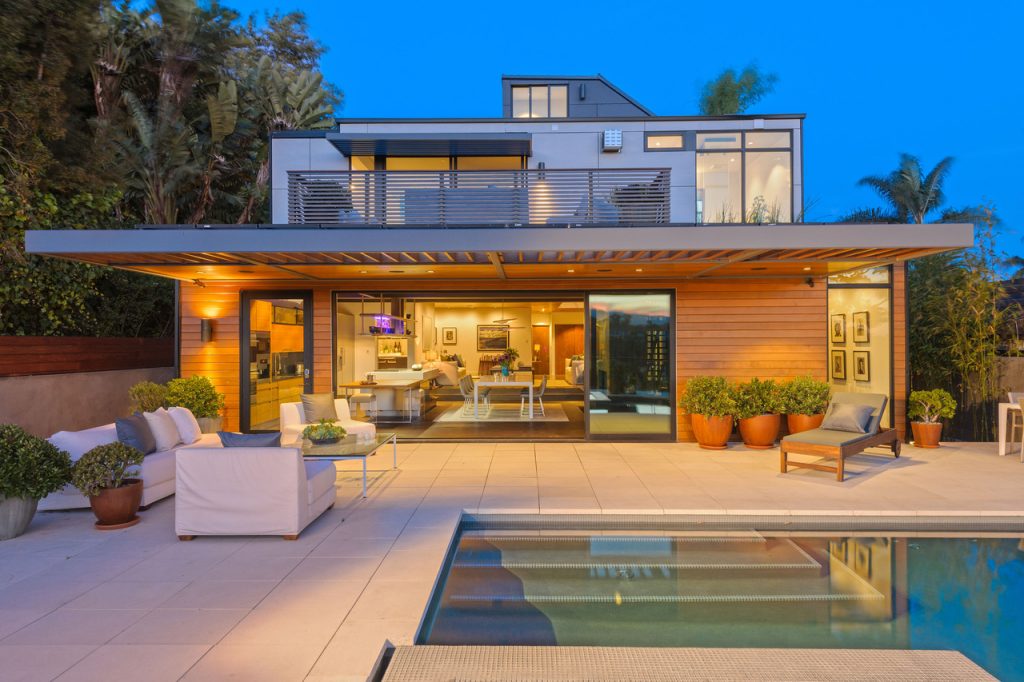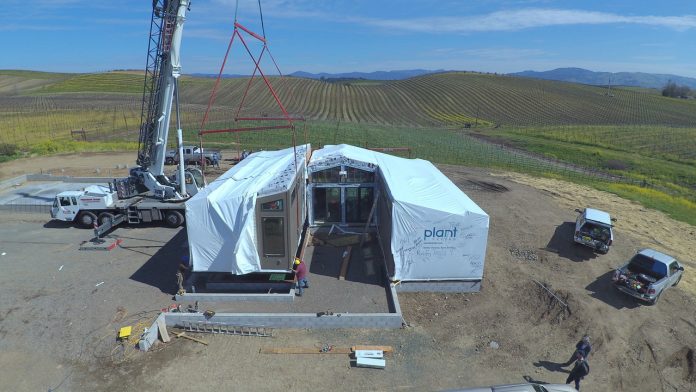Alexa Fund added as new investor, marking Amazon’s first investment in a home prefabrication/construction company
Plant Prefab, a leading home design and prefabrication company, today announced it has raised a $6.7 million Series A funding round.
Plant Prefab’s Series A funding included Obvious Ventures and the Amazon Alexa Fund.
The new round of funding will be for:
- New senior hires
- Building the marketing and sales teams
- Developing Plant Prefab’s patented Plant Building System
Voice in the Home
“Voice has emerged as a delightful technology in the home, and there are now more than 20,000 Alexa-compatible smart home devices from 3,500 different brands,” said Paul Bernard, director of the Alexa Fund. “Plant Prefab is a leader in home design and an emerging, innovative player in home manufacturing.
“We love working with companies that make a world positive impact on everyday lives. Plant Prefab is focused on dramatically improving efficiencies and environmental responsibility. With increased costs, labor shortages, reduced affordability, and the enormous impact housing has on carbon emissions, there are few challenges more important than creating more accessible, healthy housing,” said Andrew Beebe, managing director of Obvious Ventures.
In summary, Plant Prefab manufactures custom single and multi-family homes that are high-quality, sustainable, healthy and durable. Plant Prefab’s innovative approach reduces construction time by 50 percent and cost by 10-25 percent in major cities. The company partners with some of the industry’s leading architects and designers, including Ray Kappe, Kieran Timberlake and Yves Behar.

Plant Prefab Launched from LivingHomes
In 2016, the Plant Prefab was spun out of LivingHomes, a design and development company that’s designed and built dozens of award-winning prefabricated homes, including the nation’s first LEED Platinum home.
According to Plant Prefab Founder and CEO Steve Glenn, “In the housing-crunched major cities like Los Angeles, New York and San Francisco, along with areas like Silicon Valley, it takes too much time to build a home from groundbreaking to occupancy, and labor shortages, construction delays and increased construction costs are exacerbating this trend even further — and making homes increasingly less affordable.
“Building homes in factories addresses these challenges, particularly as we’re able integrate online technology, new building systems, and automation to dramatically reduce the time and cost necessary to design and build high-quality, custom homes,” he said.
The Urban Home Market
One area unique to Plant Prefab is its commitment to the fast-growing urban home market.
Increased urbanization, along with growing population and climate change concerns, have been driving demand for single and multifamily housing. Odd-shaped sites, varying zoning regulations and unique access have necessitated the need custom design.
Further, urban housing constraints are unable to accommodate standard homes that have defined prefabricated housing. In addition, more consumers are demanding homes that use less energy, water, and resources. Cities, especially in California, are asking for conservation. This includes technologies that minimize indoor air pollution.
A prefab builder will have an easier time than site builders making changes for cost and time efficiency, and for sustainable growth.
In recent months Plant Prefab has installed 26 units in California and Utah. Additionally, Plant Prefab has been helping victims of the 2017 Napa-area wildfires overcome severe contractor shortages due to the wildfire aftermath.
Plant Prefab homes are a viable solution for rebuilding efforts in areas affected by natural disasters. By leveraging its off-site build facility and full-time staff, Plant Prefab is enabling wildfire victims — who don’t have the luxury of extra time or capital — to leave temporary housing situations and access permanent, long-term homes.










